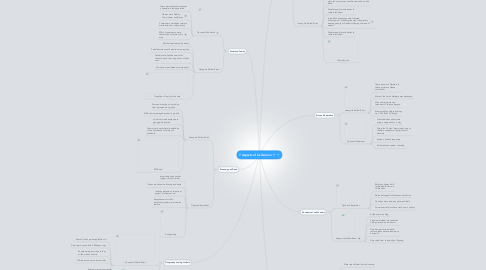
1. Geography and Agriculture
1.1. Huang He (Yellow River)
1.1.1. Annual floods produced fertile soil
1.1.2. Crops were grown here 9,000 years ago
1.1.3. People here grew crops such as millet, wheat, and rice
1.1.4. Climate here was cooler and drier
1.2. Tigris and Euphrates
1.2.1. Farming was very successful
1.2.2. Area was called Mesopotamia
1.2.3. Region was very well suited for agriculture
1.2.4. People in this area used canals and dikes to control water
2. Economy and Trade
2.1. Huang He (Yellow River)
2.1.1. Focused mostly on day to day farming instead of growth
2.1.2. Silk Road encouraged economic growth
2.1.3. Could not trade easily due to geographic location
2.1.4. Grew most in agricultural wealth due to the abundance of fertile soil availiable
2.1.5. Silk Road
2.2. Tigris and Euphrates
2.2.1. Imported goods such as copper, tin, and timber
2.2.2. Economy based on farming and trade
2.2.3. Industry became an important aspect of the economy
2.2.4. People known for their metalwork, pottery, and woolen textiles
2.2.5. Early pottery
3. Social and Family
3.1. Tigris and Euphrates
3.1.1. There were three social classes of people in the population
3.1.2. Classes were Nobles, Commoners, and Slaves
3.1.3. Commoners worked as farmers, merchants, and crafts people
3.1.4. 90% of commoners were farmers due to fertile soil in area
3.2. Huang He (Yellow River)
3.2.1. All rituals performed by males
3.2.2. Females were not allowed to own property
3.2.3. Father controlled the amount of education and the occupations of their sons
3.2.4. Family was considered very important
3.2.5. Depiction of family in the time
4. Religion
4.1. Tigris & Euphrates
4.1.1. The people practiced the worship of many gods.
4.1.2. People believed the gods controlled all natural forces like the wind, and rain and would worship them for good harvest.
4.1.3. The people believed the gods were humanlike in that they, ate, drank, and loved.
4.1.4. The people built temples and ziggurats to worship the gods.
4.1.5. Priest held high power in society because they interpreted the gods.
4.1.6. Ziggurat
4.2. Huang He (Yellow River)
4.2.1. In the Shang dynasty people believed in an ancestor worship.
4.2.2. People believed in afterlife, burying people with gifts. food, and even sacrificed servants for the dead.
4.2.3. People sought oracle bones to contact the dead.
4.2.4. In the Zhou dynasty people followed Confucianism , following the way of humanely treating people or Daoism following the laws of nature.
4.2.5. People sought oracle bones to contact the dead.
4.2.6. Oracle bones
5. Government and Leaders
5.1. Tigris and Euphrates
5.1.1. Religious figures held considerable status in civilizations
5.1.2. Slaves belonged to Nobles as work force
5.1.3. Decisions were made by palace officials
5.1.4. Commoners did not have much say in politics
5.2. Huang He (Yellow River)
5.2.1. Ruled over by a King
5.2.2. Kingdom divided into territories each governed by a warlord
5.2.3. King had power to add and remove these warlord leaders as he saw fit
5.2.4. King ruled from capital city of Anyang
6. Arts and Education
6.1. Huang He (Yellow River)
6.1.1. There was much literature in the early times of these civilizations
6.1.2. Most of the time's literature was destroyed
6.1.3. Zhon writings were very important to chinese people
6.1.4. Most notable of these writings was "The Book Of Songs"
6.2. Tigris and Euphrates
6.2.1. Created written documents using a wedged tool in clay
6.2.2. Wrote the Code of Hammurabi, one of the best examples of early juridical literature
6.2.3. Spoke a Semetic language
6.2.4. Earliest known system of writing
7. Science and Technology
7.1. Huang He (Yellow River)
7.1.1. Were very efficient in metal casting
7.1.2. Made iron tools before other civilizations
7.1.3. Bellows used for iron making
7.1.4. Paper was first made here
7.2. Tigris and Euphrates
7.2.1. Devised a number system
7.2.2. First to use wheel
7.2.3. Used irrigation for farming
7.2.4. Created a writing system
